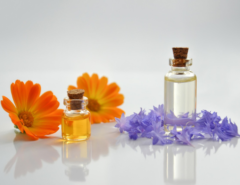Each season comes with different poison safety tips that we should keep in mind. During the summer months, we can get overwhelmed with pool parties, summer camps, and vacations. Below, we share some tips that will help you stay on top of food safety at those fun-filled picnics, summertime critters that can bite or sting you, and safe use of sunscreen and bug spray for all of your outdoor adventures.
Food Poisoning:
Summer is a great time for friends and families to come together to enjoy a meal, whether it be a cookout or picnic. But, be careful not to invite food poisoning to the party. Follow these tips to stay poison safe:
-Wash your hands and the counters before and after preparing food.
-Use one cutting board for raw meat, poultry, or seafood, and a separate one for fresh food.
-Never place cooked food on a plate that previously held raw meat, poultry, or seafood, unless the plate has been washed with soap and water.
-Do not leave food at room temperature for more than two (2) hours. Hot food needs to stay hot (e.g., in a crockpot, chafing dish, or on a hot plate) and cold food needs to stay cold (e.g., in a cooler or ice bath). If the food will be outside in the heat, take extra care to ensure it stays at a safe temperature.
-Watch for signs of food poisoning, including fever, headache, diarrhea, stomach pains, nausea, and vomiting. If these symptoms develop, call the poison center at 1-800-222-1222 for help.
Plants and Mushrooms:
Many people spend more time outdoors during the summer than other seasons. Whether on a walk, hike, or just in your yard, you might come across plants and mushrooms that are poisonous.
-Know the names of flowers and plants growing in and around your yard. Refer to the MPC Poisonous Plant list for more information. If a plant is on this list, it doesn’t mean it’s deadly — it might cause minor mouth irritation or a rash on the skin. If a plant is not on the list at all, it can’t be assumed to be non-toxic, as this list is not all-inclusive. If you’re unsure whether a plant is toxic, you can always call our experts. More information on poisonous plants can also be found on this blog post.
-Teach children to never put berries or any part of a plant into their mouths without asking an adult first.
-Children should be taught to not touch or eat any mushrooms that don’t come from the grocery store. Mushroom foraging should only be done by the very experienced.
Bites and Stings:
Warm weather brings out snakes, spiders, and insects of all kind. Unfortunately, some of them can bite or sting us. There are two poisonous snakes that live in Maryland — the Timber Rattlesnake and Eastern Copperhead. If hiking, wear long pants and proper footwear to avoid being bitten. The Black Widow spider is also native to Maryland. But, while their bites can be very painful, they are not deadly. The Brown Recluse spider is not native to Maryland, so bites from this spider are unlikely. Symptoms of these bites are limited to the bite site and include pain, redness and a “bull’s eye” appearance that may turn into an ulcer.
-If bitten by a snake, insect, or spider, wash the area thoroughly and call the Maryland Poison Center right away. It is important to take care of bites properly after they happen and watch for signs of infection.
More information about this topic is available on our Bites and Stings information sheet, as well as the Department of Natural Resource’s spider page and snake page.
Sunscreen and Insect Repellent:
Along with spending more time outdoors comes the need for sunscreen and insect repellent.
-Apply both products cautiously around the eyes and mouth. If any product gets in the eyes or mouth, call the poison center right away.
-Read and follow all directions on insect repellents. The American Academy of Pediatrics does not recommend using bug spray on children under two months old.
– If you need both sunscreen and bug spray, apply the sunscreen first and the bug spray second. Combination products are not recommended, because sunscreen should be reapplied at least every two hours, while bug spray can last 8-10 hours before re-application is needed.
More information on bug spray can be found on our information sheet.
Tiki Torch Fuel, Lighter Fluid, and Lamp Oil:
Hydrocarbons are a common poison we hear about during the summer. These include liquids used to light Tiki torches and lamps, as well as the liquid used to light your charcoal grill. They are not terribly toxic if a small amount is swallowed, but if you gasp or gag after getting some in your mouth, they can get into the lungs, possibly leading to pneumonia.
-Filling your Tiki torch with fuel can be difficult because the opening is small. We recommend using a funnel to fill the torch. Do not use a plastic cup because it can be mistaken for a cup of juice by others. Keeping a small reserve of lighter fluid in a cup near the grill is equally as dangerous, because it can be mistaken for water.
-Keep these liquids in their original container and away from children.
Glow Sticks:
Calls to the poison center about glow sticks peak around the Fourth of July and Halloween. You can find glow products anywhere from hats and ties to jewelry and balls. The liquid inside the glow products is not harmful when swallowed; it just tastes bad. If the liquid gets into someone’s eye, call the poison center right away.
If you suspect you or someone else has been exposed to a summer poison hazard, call the poison center right away. Do not wait for symptoms. We are open 24/7/365. The call is free and confidential. You’ll always reach a specialized pharmacist or nurse by calling 1-800-222-1222.





Leave a Reply